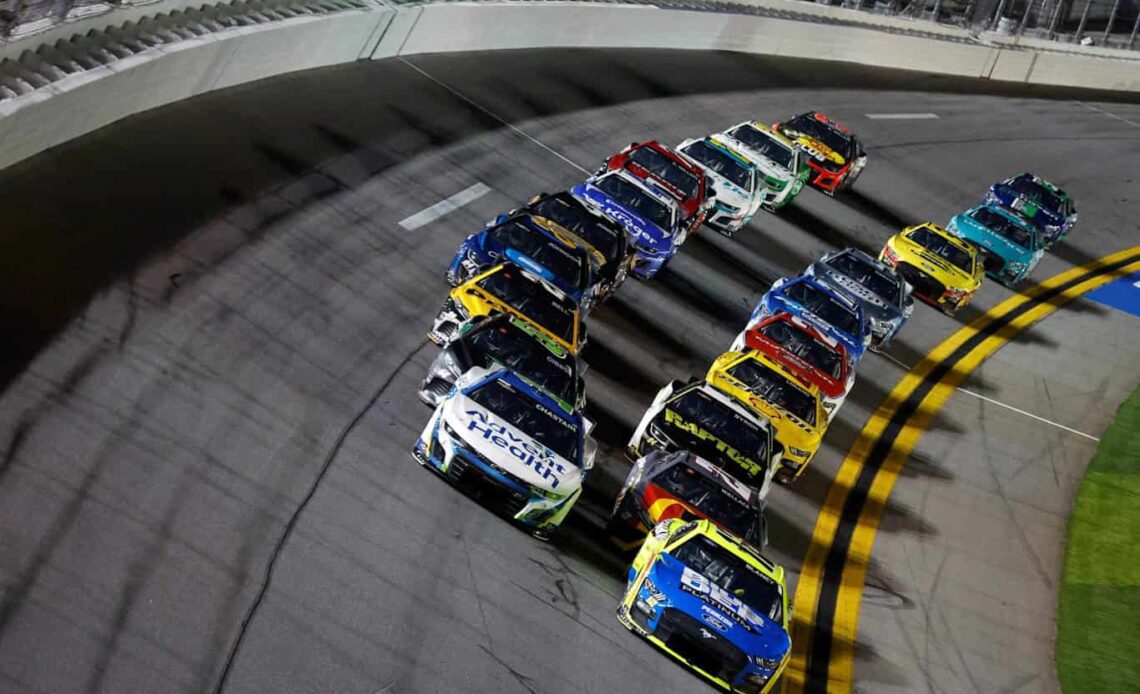On Tuesday (Feb. 13), NASCAR Cup Series teams faced the prospect of a lottery-style system delivering the news of the qualifying order for Wednesday. The 42 teams that signed up to race the Daytona 500 will then see their driver rip two laps on the track individually, and the times will then be tallied up to determine – the pole winner and the driver slotted into second. So far, the system makes sense.
Until the Duels on Thursday. When the duels commence, the drivers of all 42 cars will take their pristine, specially-built Daytona masterpiece onto the track to drive in one of two 150-mile races that then set the actual starting lineup for the race on Sunday.
Some of that still makes sense. The times from qualifying set first and second, unless the polesitter or second place driver wrecks in the Duel. Then they’ll be sent to the back because they will be pulling onto the track in a backup for the big race. The other drivers will be trying to set themselves up with the important starting position for a race – where starting position means almost nothing. Should they wreck in one of the Duels, they, too, will be starting at the back.
A quick sum-total: qualifying matters for first and second, but might not, but also matters for setting up into which Duel race they get slotted. The Duel then sets the starting positions for the 500 unless it doesn’t because the primary car rests in the back of the hauler in a heap.
All of the set up actually sets up little. One question to ask is: How many winners of the Duels have won the 500? Not many. Over the past 10 years, no driver has won a Duel and the 500. Go back 20 years, and the records indicate that two drivers accomplished the double of winning a Duel and the 500 – Matt Kenseth (2012) and Dale Earnhardt Jr. (2004). Adding 10 more years, going back to 1993, adds only two more names — Dale Earnhardt (1998) and Sterling Marlin (1995) — to the list. In all, just eight drivers have accomplished the feat, though Cale Yarborough somehow did it twice (1977, 1984), which is rather amazing when thinking about the statistical accomplishment.
The other side of this whole equation is the have-nots. The have-nots are the teams that are not backed by a charter and find themselves needing to race into the 500, doing so through the Duels because the time posted during qualifying doesn’t matter but might, depending on where other have-nots finish.
Really, the Duels are about the…
Click Here to Read the Full Original Article at …

